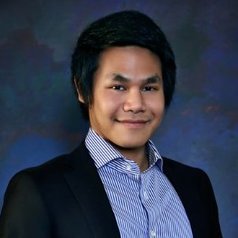
Park Thaichon
Assistant Professor of Marketing, S P Jain School of Global Management
My main research interests include Dark Marketing, Consumer Behaviour, Relationship Marketing and Integrated Marketing Communications. I am currently serves as an editorial board member for the Asia Pacific Journal of Marketing and Logistics and the International Journal of Trade and Global Markets.
My research has been published in leading marketing journals including but not limited to the Journal of Retailing and Consumer Services, Journal of Business and Industrial Marketing, Journal of Strategic Marketing, Journal of Relationship Marketing, Asia Pacific Journal of Marketing and Logistics, International Journal of Bank Marketing, International Journal of Nonprofit and Voluntary Sector Marketing, and Services Marketing Quarterly.
The fundamental aim of my research is for a better tomorrow. I wish that my current and future research would contribute to the overall benefits and well-being of the society.
Less ![]()
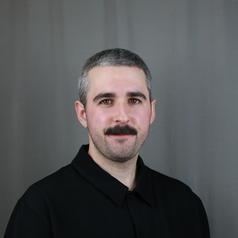
Parker Muzzerall
PhD Candidate, Department of Sociology, University of British Columbia
Parker Muzzerall is PhD Candidate in the Department of Sociology at the University of British Columbia. His research focuses on how environmental, climate, and energy issues intersect with culture. His work has appeared in publications such as American Behavioural Scientists, Energy Policy, Policy Options, and Contexts Magazine.
Less ![]()
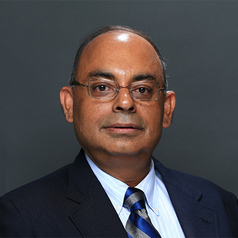
Partha Banerjee
Professor of Electrical and Computer Engineering, University of Dayton
Dr. Banerjee is a Professor of Electrical and Computer Engineering and the Director of Holography and Metamaterials Laboratory at the University of Dayton. Dr. Banerjee's research interests include digital and dynamic holography, metamaterials, photorefractives and acousto-optics.
Less ![]()
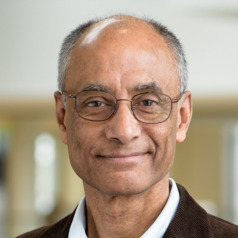
Partha Chowdhury
Professor of Physics, UMass Lowell
Partha Chowdhury is a physicist and director of the Nuclear Radiation Laboratory at UMass-Lowell. His research interests include gamma-ray spectroscopy and nuclear structure. The lab has been used for pure and applied nuclear physics research, for simulating radiation conditions of hostile space environments, for non-destructive testing and analysis, for research and development of radiation resistant electronics and materials, and for research and development of radiation induced modifications to materials.
Less ![]()
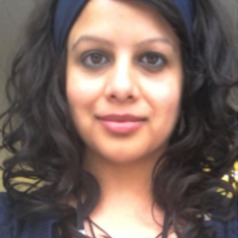
Parveen Akhtar
Dr Parveen Akhtar joined the University of Bradford as a lecturer in January 2014. Prior to this she was awarded a British Academy Research Fellowship, held at the University of Bristol (2011-2013). In 2010 she was a visiting scholar at Lahore University of Management Sciences before which she was an ESRC postdoctoral fellow at the University of Bristol (2008-2009).
Dr Akhtar completed her ESRC funded PhD at the University of Birmingham (2008) during which time she held research positions at the Institut für die Wissenschaften vom Menschen Institute for Human Sciences, Vienna (2007); the Institute for Migraiton and Ethnic Studies, Amsterdam (2006); Sciences Po, Paris (2006) and the School for Postgraduate Interdisciplinary Research on Interculturalism and Transnationalism, Aalborg (2005).
Dr Akhtar has published widely on Political Participation, Islam, Migration and Social Change in journals including; the British Journal of Politics and International Relations, the Political Quarterly and European Political Science. Her monograph, British Muslims Politics, was published by Palgrave in 2013. Dr Akhtar’s work has an international audience and she has presented her research in over 40 conferences in 15 countries. She makes regular contributions to public and media debates.
Less ![]()
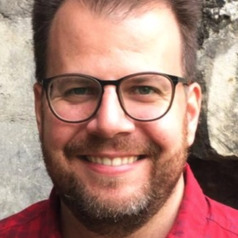
Pascal Burgmer
Lecturer in Psychology, University of Southampton
Pascal Burgmer is an Assistant Professor (University Lecturer) in Psychology at the University of Southampton. His research focuses on lay beliefs about the mind (e.g., belief in mind-body dualism), mind perception, social cognition, interpersonal trust, and moral judgments.
Less ![]()
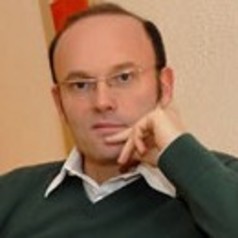
Pascal Lardellier
Professeur à l'Université de Bourgogne Franche-Comté, Chercheur au laboratoire CIMEOS, Université de Bourgogne – UBFC
Professeur à l’Université de Bourgogne Franche-Comté (Dijon), Chercheur Propedia (Groupe IGS, Paris). Auteur de « Enquête sur le business de la communication non verbale. Une analyse critique des pseudosciences du "langage corporel" » (EMS, 2017) et de « Génération 3.0. Enfants et ados à l’ère des cultures numérisées » (EMS, 2016).
Less ![]()

Pascal Michelberger
Postdoctoral Scholar, Western Academy for Advanced Research, Western University
Less ![]()
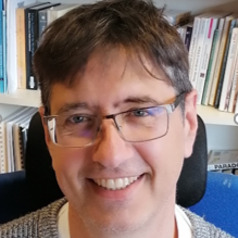
Pascal Pochet
Researcher, LAET, École nationale des travaux publics de l'État
My research activities focus on issues related to the mobility of people, and more specifically on the analysis of the links between lifestyles and daily mobility and the social issues of mobility. Conducted in collaboration, my work has been carried out mainly on African grounds, while another part focuses on French contexts.
Less ![]()
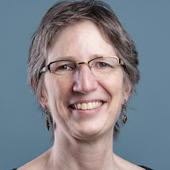
Pascale Biron
Professeure titulaire, département de géographie, urbanisme et environnement, hydrogéomorphologue, Concordia University
Less ![]()
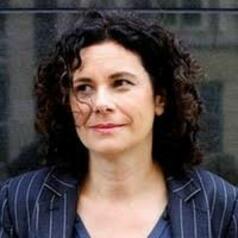
Pascale Laborier
Professeure de science politique, Institut des sciences sociales du politique (ISP), Université Paris Nanterre – Université Paris Lumières
Professeure de science politique à l'université Paris Nanterre, Fellow Institut Convergences Migrations
Less ![]()
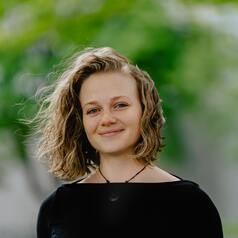
Pascale Lubbe
Postdoctoral Research Fellow in Molecular Ecology, University of Otago
I am a molecular ecologist interested in exploring the ways environmental change facilitate and engender evolutionary change in animals. A geneticist by training, I interpret both ancient and modern DNA in light of geological and palaeontological evidence to draw conclusions about palaeoenvironments and the organisms in them. My early work investigated the relationships between squirrels and the seasonality of their primary food source. Most of my work to date investigates the impacts of the Pleistocene Ice Age on New Zealand's endemic bird species; it was on this that my PhD was focused. Presently, I am studying the evolutionary and phenotypic histories of New Zealand and New Caledonian geckos as a postdoctoral fellow. All of my investigations are ultimately concerned with the lessons we can learn from the past that shed light on the future of organisms in a rapidly changing, human-dominated future.
Less ![]()
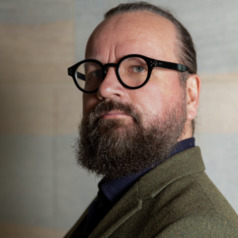
Pasi Ahonen
I joined Essex Business School, University of Essex, in November 2014. At Essex my academic home is the Management, Marketing and Organisation Subject Group on the Colchester campus. I have also worked at the School of Management / Yr Ysgol Reolaeth, Swansea University / Prifysgol Abertawe, in Wales / Cymru, the Bristol Centre for Leadership and Organizational Ethics, Bristol Business School, the University of the West of England, and the School of Business at Lappeenranta University of Technology in Finland. My educational background is long and varied. Over the years, I have studied, for varying lengths of time, at Lappeenranta University of Technology, University of Victoria (Canada), University of Saskatchewan (Canada), University of Georgia (USA) and University of Turku (Finland). In 2009-2010 I was a Visiting Scholar at Laurentian University (Canada).
Outside of academia I have worked for a Finnish location technology SME in London, UK, and for a regional development agency in Southeastern Finland on various EU-funded projects.
Less ![]()
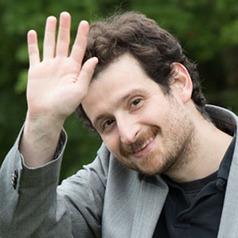
Pasquale Minervini
Lecturer in Natural Language Processing, University of Edinburgh
Pasquale is a lecturer in Natural Language Processing at the School of Informatics, University of Edinburgh; co-founder and CTO of the generative AI start-up Miniml.AI; and ELLIS Scholar (Edinburgh Unit). His research interests include natural language processing and machine learning, focusing on relational learning and learning from graph-structured data, solving knowledge-intensive tasks, hybrid neuro-symbolic models, compositional generalisation, and designing data-efficient and robust deep learning models. Pasquale published over 100 peer-reviewed papers in top-tier AI conferences, receiving multiple awards (including one Outstanding Paper Award at ICLR 2021, one of the most influential conferences in AI), and delivered several tutorials on Explainable AI and relational learning in leading AI conferences. More information on his research is available on his website, www.neuralnoise.com.
Less ![]()
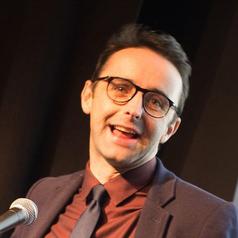
Pat Collins
Associate Professor in Geography, University of Galway
Pat Collins is a native of Galway and has worked as an Economic Geographer at NUI Galway since 2012. Prior to that he was a researcher at the Whitaker Institute where his work looked at the location decisions of multinational tech companies. More recently, Pat has turned his attention to Creative Economies and Cultural Production. Through a number of EU funded projects, Pat has sought to better understand the relationship between culture, creativity and production as well as identifying the unique role played by Geography. Pat has contributed to both of Galway’s designation of UNESCO City of Film and European Capital of Culture. He has published over 20 internationally peer reviewed journal articles and two books. He is currently Director of the newly formed UrbanLab Galway at the University of Galway. His forthcoming book ‘Galway: Making a Capital of Culture’ will be published by Orpen Press.
Less ![]()
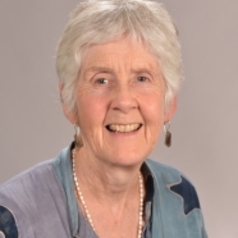
Pat Langhorne
Professor Emerita in Physics, University of Otago
Taught physics at University of Otago from 1988-2020. Sea ice researcher in Arctic and Antarctic at Universities of Cambridge and Otago from 1977-present. Retired in 2020 but have emeritus status and continue to publish journal articles on sea ice.
Less ![]()
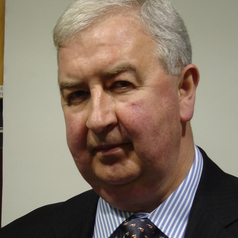
Pat McConnell
Honorary Fellow, Macquarie University Applied Finance Centre, Macquarie University
After over 30 years working for, and consulting to, major banking and insurance companies in the US, Europe and Australia, Pat transferred to teaching courses in Risk Management at Masters level and to industry. His main areas of research are in Operational Risk (People, Systems, Process and Legal risks) and banking regulation and he has published widely on this topic, including a new book on People Risk Management http://www.koganpage.com/product/people-risk-management-9780749471354 .
Less ![]()
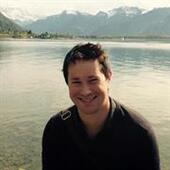
Pat McConville
Lecturer in Ethics, Law, and Professionalism, School of Medicine, Deakin University
Less ![]()
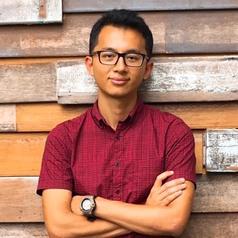
Pat Wongpan
Quantitative Sea Ice Biogeochemist/Ecologist, University of Tasmania
Pat Wongpan is a quantitative sea ice biogeochemist/ecologist at the Australian Antarctic Program Partnership Institute for Marine and Antarctic Studies, University of Tasmania. He obtained his Ph.D. from the University of Otago in New Zealand, was a David Crighton fellow at the University of Cambridge, and a JSPS post-doctoral fellow at the Institute of Low Temperature Science, Hokkaido University, Japan. He is interested in sea ice-ice shelf-ocean interactions and their consequences on the ecosystem.
Less ![]()

Patrice Laroche
Professeur des Universités en sciences de gestion, IAE Nancy School of Management
Patrice LAROCHE est professeur des Universités à l’IAE de Nancy et professeur affilié de Gestion des Ressources Humaines à ESCP Europe (Paris). Spécialiste du syndicalisme et des relations sociales en entreprise, il a été professeur invité à Cornell University (Industrial and Labor Relations School), à l’UC Berkeley et à la London School of Economics and Political Science. Membre de l’Institut Universitaire de France (IUF) depuis 2008, ses travaux de recherche portent plus particulièrement sur les effets de l’activité syndicale sur la performance des entreprises. Il est l’auteur de plusieurs contributions dans des ouvrages collectifs et de nombreux articles publiés dans des revues scientifiques. Il est également l’auteur de deux ouvrages intitulés respectivement « Les relations sociales en entreprise » et « Gérer les relations avec les partenaires sociaux. Fonctionnement et enjeux du dialogue social » publiés en 2009 et 2010 aux éditions Dunod et co-auteur d’un ouvrage en langue anglaise publié en 2017 aux éditions Routledge « The Economics of Trade Unions : A Study of a Research Field and its Findings ».
Agrégation des Facultés de Droit, économie et gestion
Habilitation à Diriger des Recherches, Université Paris 1 Sorbonne
Doctorat en sciences de gestion, Université Nancy 2
Less ![]()
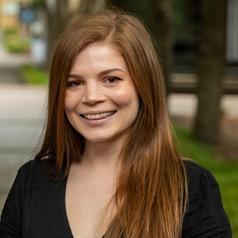
Patrice Jones
Post doctoral research fellow, Institute for Health & Sport, Victoria University
Dr Patrice Jones is a Postdoctoral Research Fellow in the Genetics, Epigenetics and Exercise group at the Institute for Health and Sport (IHeS)
Patrice's research interests are in examining biological differences in exercise responses and related epigenetic and metabolic processes. Her current work focuses on examining the effects of gender affirming hormone therapies on physiological and molecular measures of muscle health and performance in trans individuals. This work aims to advance our understanding of the functional impacts of GAHT and inform evidence-based exercise programs and guidelines aimed at improving physical activity in trans Australians
Patrice completed her PhD in the area of nutrigenomics in 2020, at the University of Newcastle, and also undertook a predoctoral training fellowship at NIEHS/NIH (USA) in 2019 exploring the molecular effects of sex hormones in breast tissue. She has published 20 manuscripts (9 as lead author and 5 as second author), and two editorial letters (1 as lead author, 1 as second author).
Less ![]()
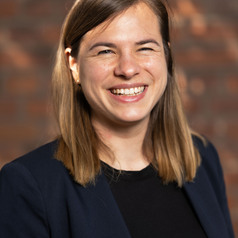
Patricia Christian
Postdoctoral Research Fellow at the Department of Clinical Neuroscience, Karolinska Institutet
Less ![]()
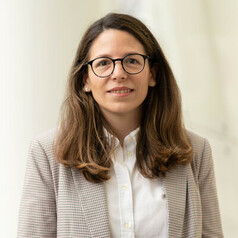
Patricia Correa
Lecturer in Politics and International Relations, Aston University
Prior to joining Aston as a Lecturer in Politics and International Relations, I was a Postdoctoral Research Fellow at the University of Exeter (UK). I received my PhD in Politics from the Autonomous University of Barcelona (Spain) in November 2015.
My research agenda is driven by a fundamental interest in the internal organization, and the electoral and governmental behaviour of political parties. To date, the primary purpose of my research has been to understand how political parties face changes in the political system and, hence, the party system where they compete. Parallel to this, my research has also focused on two additional issues linked to political parties, the main characteristics and behaviour of middle-level party elites and party activists and parties' adaptation to digitalization.
Less ![]()
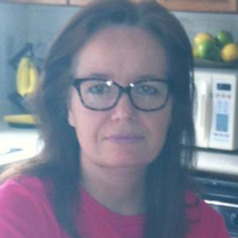
Patricia Dekeseredy
Clinical Research Specialist, West Virginia University
I am a researcher at WVU Medicine and West Virginia University. I have published in the area of opioid use, drug policy and stigma. I am a Canadian living in West Virginia researching the opioid crisis, social determinants of health and health care disparities.
Less ![]()
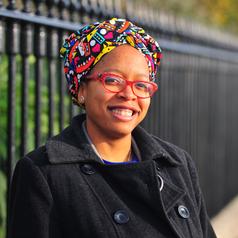
Patricia Hamilton
Lecturer in Sociology, University of York
Patricia joined the University of York as a Lecturer in Sociology in September 2022. She completed her undergraduate degree in South Africa, majoring in English and Sociology, before moving to the UK for an MA in Gender Studies, funded by a Commonwealth scholarship.
For her PhD at the University of Western Ontario, Patricia interviewed black mothers living in the UK and Canada and explored their engagements with attachment parenting, a popular parenting philosophy that emphasises secure attachment between mother and child and is promoted as a ‘natural’ and ‘instinctive’ approach to raising children. The monograph based on this doctoral research, Black Mothers and Attachment Parenting, was published in the Bristol University Press Sociology of Children and Families series and was shortlisted for the 2021 BSA Philip Abrams Memorial Prize.
She's currently writing a book about the development of parenting leave policies, including maternity leave and Shared Parental Leave, in the UK.
Less ![]()

Patricia Hogwood
I am a Reader in European Politics in the Department of Politics and International Relations (DPIR). I completed my PhD in European Studies at the University of Bradford and taught at the universities of Strathclyde, Edinburgh and Glasgow before coming to the University of Westminster in 2004. I work in the fields of comparative European politics and European Union politics, specialising in German politics, political identity and internal security.
Less ![]()
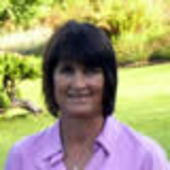

Patricia MacCormack
Professor of Continental Philosophy, Anglia Ruskin University
Patricia is a researcher who has published in the areas of continental philosophy (especially Deleuze, Guattari, Serres, Irigaray, Lyotard, Kristeva, Blanchot, Ranciere), feminism, queer theory, posthuman theory, horror film, body modification, animal rights/abolitionism, cinesexuality and ethics.
Patricia has published extensively in the areas of Continental philosophy, feminism, queer theory, posthuman ethics, animal studies and horror films. The REF test rated all her work at 4*. Her work has been cited and reviewed internationally resulting in many invites to HEIs to speak both to Faculty and public lectures. Her monographs Cinesexuality, Posthuman Ethics and The Animal Catalyst collection have been key reading on curricula internationally, including Monash University, Brock University, UCSB and universities in Europe, North and South America and Australia. She has had successful large single researcher grant applications and continues to apply for large grants.
Less ![]()
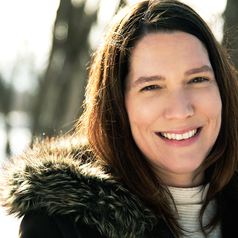
Patricia Raymond
Chercheuse scientifique et professeure associée, Université du Québec à Chicoutimi (UQAC)
Patricia Raymond est ingénieure forestière et chercheuse scientifique à l’emploi de la Direction de la recherche forestière du Ministère des Ressources naturelles et des Forêts du Québec depuis 2002. Passionnée d’écologie forestière et de sylviculture appliquée, elle s’intéresse particulièrement à la forêt mixte tempérée pour laquelle elle expérimente des méthodes de régénération compatibles avec l'aménagement écosystémique et d'autres pouvant aider les forêts à s'adapter aux changements globaux.
Less ![]()

Patricia Sánchez-Holgado
Personal Docente e Investigador, Universidad de Salamanca
Doctora en Formación en la Sociedad del Conocimiento por la Universidad de Salamanca. Licenciada en Publicidad y Relaciones públicas por la Universidad Complutense de Madrid. Postgrado en Dirección y Gestión de empresas por la Escuela de Administración de Empresas de la Universidad Politècnica de Catalunya. Postgrado en Big Data y Data Science por la Universidad Pontificia de Salamanca. Máster en Estudios de la Ciencia, la Tecnología y la Innovación, con especialidad en Cultura Científica por la Universidad de Oviedo. Máster Universitario en Formación del Profesorado de Educación Secundaria Obligatoria y Bachillerato, Formación Profesional y Enseñanzas de Idiomas. Posee experiencia laboral de más de 20 años en el campo de la comunicación en empresas privadas.
Sus líneas de investigación se centran en: adopción de tecnologías, comunicación científica, big data e inteligencia artificial en comunicación, perspectiva de género, opinión pública, migraciones, discursos de odio y métodos computacionales de investigación en ciencias sociales.
Less ![]()
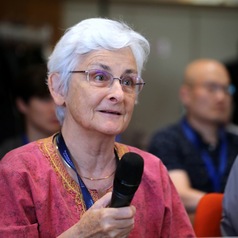
Patricia Ann Whitelock
Former director of SAAO and honorary professor at UCT, South African Astronomical Observatory
Whitelock is an astronomer at, and former director of, the South African Astronomical Observatory and an honorary professor at the University of Cape Town. She obtained her BSc and PhD at the University of London. Her primary research interests are the late stages of stellar evolution, mass-loss and variability. She also works on galactic structure, near-by galaxies and the cosmic distance scale. She is involved in astronomy education, astronomy for development, and international coordination and collaboration. She has served as president of the International Astronomical Union’s Division VII (Galactic Systems), is a member of the Academy of Sciences of South Africa, an honorary fellow of the Royal Astronomical Society (UK) and an honorary member and fellow—and former president—of the South African Institute of Physics (SAIP). She is the recipient of the 2018 de Beers Gold Medal of the SAIP and a Doctor of Laws (honoris causa) from Rhodes University in 2020.
Less ![]()

Patricia Arranz Alonso
Researcher in Marine Biology, Universidad de La Laguna
Patricia Arranz is a marine biologist and marine mammal expert
Less ![]()
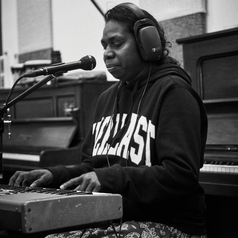
Patricia Nja-wakadj Gibson
Indigenous Knowledge Holder, Indigenous Knowledge
Patricia is from Dhukurrdji clan, the traditional landowners of Maningrida community in West Arnhem Land, Northern Territory. She speaks Ndjébbana, Kuninjku, Na-kara and Kun-barlang. Her skin name is Nja-wakadj and she is from the Yirridja moiety. Patricia grew up on the tiny outstation of Modkorldjban, in the rocky country. When she was 10 years old she moved to the Waláya area of Maningrida where she went to school and learnt music. Patricia is a djunggay and cultural leader for ceremony in and around Maningrida.
Patricia is an established gospel singer and composer. With her brother, she records songs that reflect the troubles she has seen and the strength needed to overcome. She is also keyboard player, vocalist and songwriter in the all-women’s rock band Ripple Effect Band. She has toured nationally and her song Ngúddja was recently featured in the Stan series BUMP. Through her work with the band, she collaborates on research about popular music, First Nation languages and the power of music to contribute to social change.
Currently Patricia works at Mala'la Health Service in Maningrida on the Rheumatic Heart Project as a community liaison officer.
Less ![]()
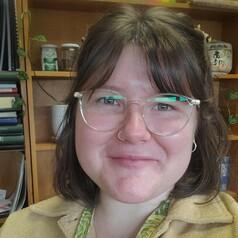
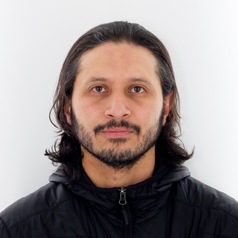
Patricio Gallardo
Researcher in Transition Engineering, University of Canterbury
Patricio is a research engineer at the Electric Power Engineering Centre. His area of research focuses on transportation as an energy system. He has cross-disciplinary experience integrating transition engineering, energy systems planning, GIS-based analysis, and microsimulation approaches. Patricio is passionate about everything that revolves around energy and transportation planning, data science, and GIS analysis. He is a member of the Global Association for Transition Engineering (GATE), and is open to collaborate on projects aiming to engineer the decarbonization of complex activity systems.
Less ![]()
- Market Data























